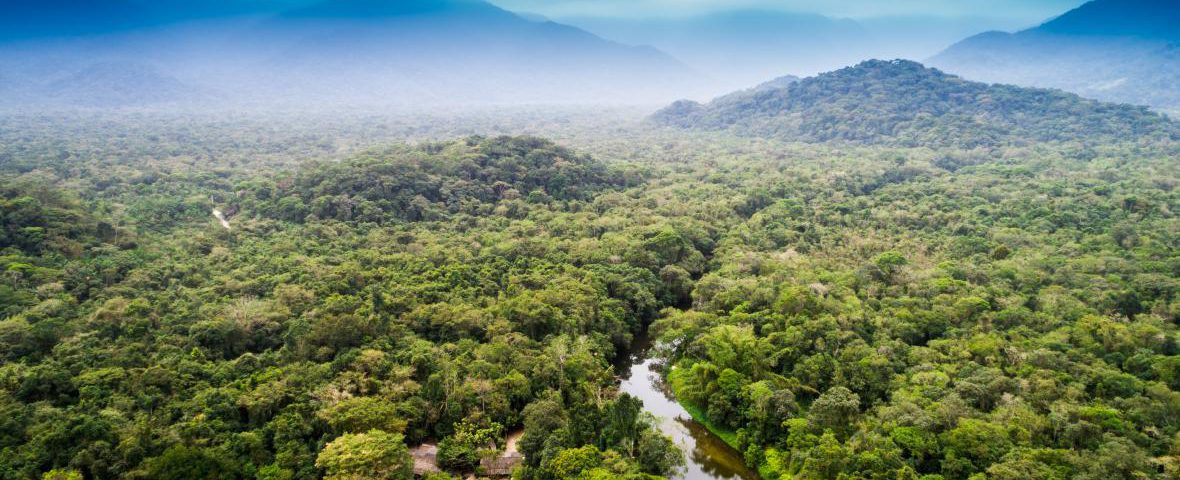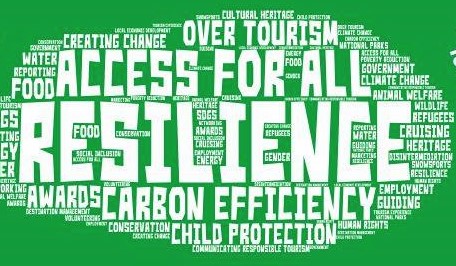Today WTM is launching a Platform for Change, an opportunity for us to share tried and tested solutions and debate how best to create a sustainable travel & tourism sector. One of the most difficult challenges is decarbonising aviation, it is the first of our platforms for change. In March 2020, the respected German consultancy Roland Berger forecast that if other industries decarbonise in line with current projections, aviation could account for up to 24% of global emissions by 2050 unless there is a significant technological shift, and in those circumstances, we can expect governments to be seriously curtailing air transport. This will be serious for outbound travel, but much more serious in destinations.
The Platform for Change will provide a space to share and debate solutions, many of which have been recognised in the World Responsible Tourism Awards, this year re-engineered to create Global Responsible Tourism Awards composed of four regional awards programmes. The Awards close for nominations and entries on August 31st – please spread the word and consider entering. Details below.
On climate change, President Biden is clear about urgency. He has pointed out that “… scientists tell us that this is the decisive decade – this is the decade we must make decisions that will avoid the worst consequences of the climate crisis… the world beyond 1.5 degrees means more frequent and intense fires, floods, droughts, heatwaves and hurricanes – tearing through communities, ripping away lives and livelihoods, increasingly dire impacts to our public health…. We can’t resign ourselves to that future. We have to take action, all of us.” Now we’ve seen the wildfires and other consequences for human health, other species and the environment in the Pacific northwest. It is no longer an academic debate about the science of climate change – the change is upon us and we need to adapt to it.
The agenda for action is no longer only about mitigation, we have procrastinated for so long that we have now to mitigate and adapt. We should remind ourselves that we shall not destroy our Earth, we are just making it less hospitable for ourselves, and many other species. We are creating for our children and grandchildren a much less benign environment, our failure to take responsibility will impact negatively on the lives of our descendants for generations. There is nothing inevitable about progress, as we bump up against the limits of what our planet can sustain we can expect living standards to decline. As the Oxford academic, Kate Rawnforth has explained “Humanity’s 21st-century challenge is to meet the needs of all within the means of the planet. In other words, to ensure that no one falls short on life’s essentials (from food and housing to healthcare and political voice), while ensuring that collectively we do not overshoot our pressure on Earth’s life-supporting systems…”
It was clear in 2002 that sustainable tourism was failing, John Swarbrooke explained why it failed here last week. Alongside the World Summit on Sustainable Development in 2002 the Cape Town Declaration focused on responsibility, the willingness to take action on the issues which matter and to use tourism to make better places for people to live in and to visit. Only by taking responsibility can sustainability be realised. At WTM London in November 2022 we shall be marking twenty years of Responsible Tourism and reflecting on success and failure.
The travel and tourism industry is more at risk than many other sectors. Leisure travel is a luxury, one which takes relatively wealthy consumers to visit other people in their homes, in areas with higher levels of poverty and often badly impacted by climate change and biodiversity loss. We have riled against the restrictions on travel as governments have sought to defend people against Covid-19, but our sector will have to learn to operate in a much more difficult environment. We’ll have to learn to live with Covid-19 as we have with influenza. The crises of climate, biodiversity, resource scarcity and poverty are now chronic, they are not going to go away. Denial is not a strategy, despair is not productive, they are both irresponsible.
Our resilience, our survival as a sector, requires that we mitigate climate change and adapt to doing the business of travel and tourism in more difficult circumstances. Denial and despair are at two ends of a spectrum of responses to the problems that we face with climate change; pandemics (Covid-19 was not the first and it won’t be the last); increasing inequality and over-tourism. Denial and despair are irresponsible places to be – we need action, our consumers and our children and grandchildren demand it.
Consumers, travellers and holidaymakers expect us to shoulder the responsibility. Last year the Pew Research Center surveyed people in 14 countries, amid the pandemic, about climate change. A median of 70% said that they were concerned about the threat of global climate change, 69% said the same about the spread of infectious diseases. Booking.com’s latest global research suggests that we have reached a “potential watershed moment for industry and consumers”. 3% of global travelers think sustainable travel is vital, with 61% saying the pandemic has made them want to travel more sustainably in the future. Almost half (49%) still believe that in 2021, there aren’t enough sustainable travel options available, with 53% admitting they get annoyed if somewhere they are staying stops them from being sustainable, for example by not providing recycling facilities.
The trading environment is going to be difficult, those who take responsibility and mitigate and adapt will survive. Our sector is characterised by interdependence between transport, accommodation providers, attractions and natural and cultural heritage. We need to remember Ubuntu (‘I am what I am because of who we all are’) and the Shona proverb: ‘Chra chimive hachitswane inda’ – a thumb working on its own is worthless. It has to work collectively with the other fingers to get strength and be able to achieve.
Entries and nominations for the WTM Global Responsible Tourism Awards are now open, and this time they’re global. They’re free to enter, and the deadline is August 31st 2021.
Categories:
- Decarbonising Travel & Tourism,
- Sustaining Employees and Communities through the Pandemic,
- Destinations Building Back Better Post-COVID,
- Increasing Diversity in Tourism: How inclusive is our industry?
- Reducing Plastic Waste in the Environment and
- Growing the Local Economic Benefit.
In 2021, for the first time, we are launching Global Awards for each category – selected from the Gold winners in each of the regions: India, Africa, Latin America and the rest of the world.



